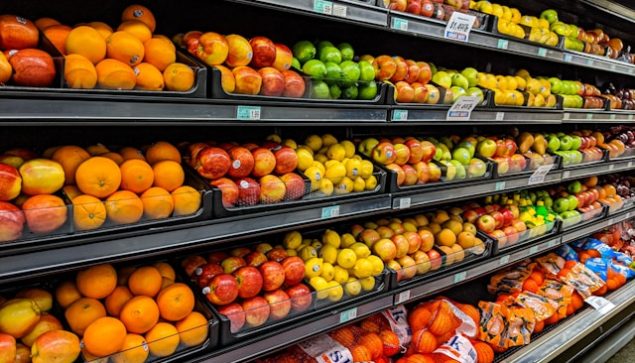MONTREAL – January 22, 2019 – Food Secure Canada applauds today’s release of the new Canada’s Food Guide, going beyond simply what to eat and getting to how we eat: encouraging more plant-based foods and less highly processed foods, and eating more mindfully and together. The new dietary guidelines open the door to important next steps, addressing how poverty and food insecurity influence diet and health, and beginning to consider cultural dimensions and the environmental impact of our food choices.
“The new Food Guide is a significant step in the right direction, and we see it as a cornerstone of the long-awaited Food Policy for Canada,” says Diana Bronson, Executive Director of Food Secure Canada. “Encouraging a shift to more plant-based diets that are good for both health and the planet, it is a golden opportunity for sustainable agriculture. The more that Canadians think about their food and where it comes from, the better it is for farmers.”
With its emphasis on food skills and creating healthier food environments, this is a key moment to establish a national cost-shared school food program. Canada was ranked 37th out of 41 rich countries when it comes to providing healthy food for kids, and two thirds of children between the ages of 4 and 13 do not eat the recommended daily amount of fresh fruits and vegetables. “The Food Guide lays the basis for a healthier next generation.” says Debbie Field, National Coordinator of the Coalition for Healthy School Food. “But without an investment from the federal government in healthy school food, it will not have its intended impact. The federal government needs to step in with funding to support a national cost-shared school food program and make healthy eating an everyday reality for all children.”
Connecting the new food guide with public agencies like schools and hospitals can have the added benefit of strengthening rural economies and rebuilding infrastructure needed for local farmers to bring their products to market, as demonstrated in the Nourish initiative working to bring better food to hospitals. Increasingly, there is an understanding that this is a win/win approach, whereby increasing healthier eating options in public institutions builds stronger local economies.
Also critical for Indigenous communities and peoples, the Food Guide emphasizes the importance of access to the range of plant and animal foods provided from Indigenous food systems. The Guide offers an opportunity to address food security through connecting healthy eating with the distinct food access conditions Indigenous communities experience. As well as supporting Indigenous Peoples in rebuilding and protecting Indigenous food systems for health, well-being and identity.
While the dietary guidelines are an important breakthrough, Canadians are still waiting for a comprehensive Food Policy for Canada, where the links between health, equity and agriculture can be fully developed. A coherent national food policy would help government deliver on what Canadians have highlighted in consultations time after time – the need for more healthy, local, and culturally relevant Canadian food, accessible to all.
There is a tremendous opportunity to seize the current food policy moment and move firmly forward in the public interest: healthy people, healthy communities and healthy local economies. We congratulate Minister Petitpas Taylor for standing up to industry pressure and doing what the public interest demanded for new dietary guidance to better support the health of Canadians.
– 30 –
About Food Secure Canada
Food Secure Canada is a pan-Canadian alliance of organizations and individuals working together to advance food security and food sovereignty through three inter-locking goals: zero hunger, healthy and safe food, and sustainable food systems.
For more information:
- Diana Bronson, Executive Director, Food Secure Canada, director@foodsecurecanada.org
- Jennifer Reynolds, Program Manager, Food Secure Canada, institutions@foodsecurecanada.org
- Debbie Field, National Coordinator, Coalition for Healthy School Food, schoolfood@foodsecurecanada.org
- Treena Delormier, Associate Professor, School of Human Nutrition at McGill University, treena.delormier@mcgill.ca

